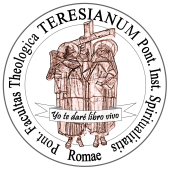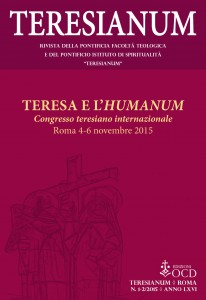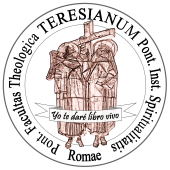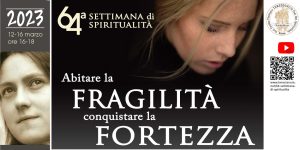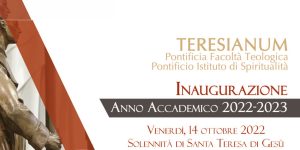The spirituality of silence in the Christian-Carmelite tradition
Professor: Michael-Joseph Paris OCD
Justification:
Silence is perceived as a great need of our time, yet it is often misunderstood. The Carmelite tradition emphasizes a kind of silence that, rather than simply being an absence of physical noise or digital stimulation, is an inner attitude of listening, openness and availability. The course will provide a philosophical, theological, and biblical basis of this reality. Mary and the Carmelite mystics will be seen as embodiments of a receptive, listening silence so needed in the world.
Goals:
The intention of this course is to give a basic introduction to the reality of silence in the Christian-Carmelite tradition, especially through the lives of Jesus, Mary, and the mystics. From these sources we will develop a practical methodology to living a healthy silence in one’s daily life.
Content:
We will first look at the origins of silence in God, manifesting itself as a positive reality that lies at the basis of human nature. Then we will examine what Christian Revelation teaches us about silence, especially in the life and ministry of Jesus Christ. This will lead to a study of silence in the mystical tradition through the via negativa and particularly through the experience of St Teresa of Jesus and St John of the Cross. This will open us up to the notion of silence as a path of receptivity and openness to the Divine presence. We will explore the culmination of mystical silence in the person of the Virgin Mary. By examining Mary’s relationship to the Holy Spirit, she can be seen as the woman most endowed with the gift of mystical silence. Finally, we will examine a kind of pedagogy for practically living interior silence and dealing with the noise that is present in all of us. Through simple yet demanding responses to this noise, one can clear the way for interior silence to develop, disposing one towards psychological and spiritual transformation.
Method:
Pre-registered lessons, Zoom live sessions, personal study
Criteria for evaluation:
One written paper (4-6 pages) the theme of which will be announced in class
Time distribution:
12 hours in class, personal readings, preparation of the written paper
***
Essential bibliography:
St. Teresa of Jesus, The Collected Works of St. Teresa of Jesus, translated by K. Kavanaugh and O. Rodriguez, Washington DC: ICS Publications, 1987.
St. John of the Cross, The Collected Works of St. John of the Cross, translated by K. Kavanaugh and O. Rodriguez, Washington DC: ICS Publications, 1991.
St. Elizabeth of the Trinity, et al. I Have Found God: Complete Works vol I. Washington DC: ICS Publications, 1984.
————
Báez, Silvio José Cuando todo calla: El silencio en la Biblia. Madrid: Editorial de Espiritualidad, 2009.
Laird, M. S. Into the Silent Land: A Guide to the Christian Practice of Contemplation. Oxford University Press, 2006.
Marie Aimée de Jésus, et al. The Twelve Degrees of Silence. Novalis, 2014.
Picard, Max. The World of Silence. Chicago: Henry Regnery Company, 1952.
Pseudo-Dionysius, et al. The Mystical Theology. Sapientia Press of Ave Maria University, 2020.
